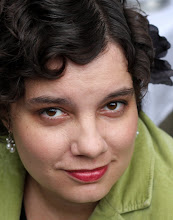 The Stone Diaries
The Stone DiariesBy Carol Shields
Winner of the Pulitzer Prize
I read this book a few months ago, over the span of only a few days. The story is somewhat straightforward: the book tells the story of one Canadian woman’s life and is told to the listener/reader through varying points of view. And even while the teller of the story, or manner of telling the story may vary, time continues to pass. This is one thing that makes the book incredibly unique and enjoyable. The first part of the book has the main character telling the story of her birth and her family history. Some of the story is told like a newspaper story, in third person omniscient. Then whole decades of her mid-life shown to us through the letters she writes back and forth between her and her boss, allowing us to impute what happened to her during this time. The reader is left to somewhat impishly piece together the details of what happened in her life at that point.
Apparently in the original printing the book included photos of the people. The book,
The Emigrants, by W.G. Sebald also uses this technique. Apparently both writers used the photos to piece together fictional stories about people. If my memory serves, the photos in
The Emigrants might be real or rather the author left the validity of the photos up in the air. (
The Emigrants reviews the lives of four Jews living in German-speaking countries. It too, is very well done. “A masterpiece.” (
The New York Times)) This technique for finding inspiration for a story is interesting to me; something I would like to try. Imagining someone's life where the only information you have about that person is what they look like. A kind of acceptable profiling, perhaps.
Some reviewers of this book have said that the book lacks a plot. Can a person’s entire life story serve as a plot? As an experiment, this book succeeds in proving that the plot of one person’s life is enough to keep the reader’s attention and propel the story forward. The reader wants to keep reading.
Somewhere about three-fourths along in the book I realized that the book was going to end in her death. And we, as the readers or voyeurs, were not going to be able to learn any more details about the other characters in the book. I wanted to know how the other character’s lives turned out.
One thing I often forget about my parents is that they had a life before and completely separate from me. The author here does a good job of delineating the different periods in Daisy Goodwell Flett’s life. We see her being born, growing up, getting married (2x’s), raising children, finding herself, and then growing old.
This what people do. As Gram says, “We come and we go.” While somewhat mundane, I greatly enjoyed the book.












